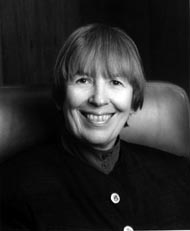
By Racey Rodne
The third installment of the RCBA Diversity Committee’s Trailblazers Series highlights Judge Diane E. Murphy, the first woman to serve on the Federal District Court of Minnesota and the U.S. Court of Appeals Eighth Circuit.
Previously, the RCBA Diversity Committee’s Trailblazers Series has highlighted Margaret Seelye Treuer and Fredrick Lamar McGhee. Both are landmark Minnesota attorneys who have made their mark on Minnesota history. Both are sources of inspiration for Minnesotans and specifically Minnesotans of color.
The purpose of this series is to highlight attorneys and judges of our past that have led us to the opportunities that we are presented with today, and also to compare and contrast our histories’ societal issues with ones we are currently presented with. Margaret Seelye Treuer’s work on treaty rights was monumental for Federal Indian law across the country and Fedrick McGhee was persistent in demanding full social equality. Each of these issues that our highlighted trailblazers fought for in their careers are still present today. In Lutsen, treaty rights are at the center of an ongoing battle between local Ojibwa Bands and a proposed Lutsen Ski expansion. In regard to McGhee’s demand for social equality, minorities are still fighting for that over a century later.
 Judge Diane E. Murphy was a champion of gender equality. She was the first woman to serve on the Federal District Court of Minnesota and the U.S. Court of Appeals Eighth Circuit. In fact, for a period of 19 years she was the only woman to serve of the U.S. Court of Appeals Eighth Circuit. Judge Murphy was often recognized for her work on the Gender Fairness Task Force. In a way, the first woman to serve on the U.S. Court of Appeals Eight Circuit was tasked with figuring out how the Court was doing it wrong regarding inclusion.
Judge Diane E. Murphy was a champion of gender equality. She was the first woman to serve on the Federal District Court of Minnesota and the U.S. Court of Appeals Eighth Circuit. In fact, for a period of 19 years she was the only woman to serve of the U.S. Court of Appeals Eighth Circuit. Judge Murphy was often recognized for her work on the Gender Fairness Task Force. In a way, the first woman to serve on the U.S. Court of Appeals Eight Circuit was tasked with figuring out how the Court was doing it wrong regarding inclusion.
The Gender Fairness Task Force was published in 1997. Judge Murphy wrote:
“[I]t is not surprising to find an institution that has evolved to be more in tune with the needs and interests of the men who form its majority and managers. . . . [W]e are seeing history rather than intent at work; yet, the effects are real and wide-ranging.”1
When Judge Murphy graduated law school, 1975, only 20% of law students were women—in 2021 over 50% of law students were women.2 Similar to the issues that presented to Seelye Treuer and McGhee, gender equality is still a battle today as only approximately 21% of equity partners in law firms are women. The effects of history are still at work today, but it is trailblazers like Judge Murphy that force statistics like the ones above to change.
Racey Rodne, who practices personal injury law with
McEllistrem Fargione, P.A., is co-chair of the New Lawyers Section, and a member of the
RCBA Board and the Diversity Committee.
Notes
1 Minn. L. Re. Vol. 103:1, A Tribute to Brave Pioneering: Judge Diana Murphy and the Eighth Circuit Gender Fairness Task Force: 1993–1997, Janice M. Symchych.